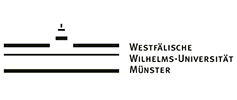The Function of Judicial Dissent in Indonesia’s Constitutional Court
DOI:
https://doi.org/10.31078/consrev411Keywords:
Constitutional Court, Indonesia, Judicial DissentAbstract
Indonesian judges are permitted to issue dissenting opinions. Constitutional Court judges regularly hand them down. However, neither judges nor academics have outlined the purposes of dissenting opinions in Indonesia. This article aims to promote discussion about what these purposes are, or should be, in Indonesia, with a view to increasing the utility of dissents. It begins by considering the international scholarly literature details some purposes recognised in other countries, such as increased transparency and accountability, but also some disadvantages, such as the perceived weakness of a divided court. It then considers how the Constitutional employs dissents, before exploring some of the uncertainties and unanswered questions about dissents and their use in Indonesia.References
Ali, Raymond. “Perlukah Dissenting Opinion Di Mahkamah Agung?” Pemantau
Peradilan, April 7, 2003. http://www.pemantauperadilan.com/detil/detil.
php?id=68&tipe=opini.
Beudenbacher, Carl. “Some Remarks on the Method of Civil Law.” Texas
International Law Journal 34 (1999): 333.
Blankenburg, Erhard. Dutch Legal Culture. 2nd rev. and enl. ed. Boston: Kluwer
Law and Taxation Publishers, 1994.
Blomquist, RF. “Dissent, Posner-Style: Judge Richard A Posner’s First Decade of
Dissenting Opinions, 1981-1991 – Toward an Aesthetic of Judicial Dissenting
Style.” Missouri Law Review 69 (2004): 73.
Butt, Simon. “Constitutional Court Lets Local Governments off the Leash.”
Indonesia at Melbourne, July 4, 2017. http://indonesiaatmelbourne.unimelb.
edu.au/constitutional-court-lets-local-governments-off-the-leash/.
———. “Regional Autonomy and the Proliferation of Perda in Indonesia: An
Assessment of Bureaucratic and Judicial Review Mechanisms.” Sydney Law
Review vol 32(2) (2010): 177.
———. The Constitutional Court and Democracy in Indonesia. Brill, 2015.
Butt, Simon, and Tim Lindsey. Indonesian Law. Oxford: Oxford University Press,
2018.
Butt, Simon, and Nicholas Parsons. “Reining in Regional Governments? Local
Taxes and Investment in Decentralised Indonesia.” Sydney Law Review 34,
no. 1 (2012): 91–106.
Cole, David. “The Power of a Supreme Court Dissent.” Washington Post,
October 29, 2015. https://www.washingtonpost.com/opinions/the-power-ofa-
supreme-court-dissent/2015/10/29/fbc80acc-66cb-11e5-8325-a42b5a459b1e_
story.html?utm_term=.b392c62038be.
Ginsburg, Ruth Bader. “The Role of Dissenting Opinions.” Minnesota Law Review
95(1) (1999).
Jacobson, A. J. “Publishing Dissent.” Washington and Lee Law Review 62, no. 4
(2005): 1607–36.
Junaidi, Veri, Adelline Syahda, and Adam Mulya Bunga Mayang. Tiga Belas
Tahun Mahkamah Konstitusi Dalam Memutus Pengujian Undang-Undang.
Jakarta: Kode Inisiatif, 2016.
“Kontroversi Sebutir Pertimbangan.” Tempo Interaktif, February 21, 2005.
http://www.tempointeraktif.com/hg/mbmtempo/arsip/2005/02/21/HK/
mbm.20050221.hk1.id.html.
L’Heureux-Dube, Claire. “The Dissenting Opinion: Voice of the Future?” Osgoode
Hall Law Journal 38(3) (n.d.): 495–512.
Lynch, Andrew. “Is Judicial Dissent Constitutionally Protected?” Macquarie Law
Journal 4, (2004): 81–104.
Mahkamah Agung. Blueprint for the Reform of the Supreme Court of Indonesia.
Jakarta: Supreme Court of Indonesia, 2003.
Mahkamah Konstitusi. Naskah Komprehensif Perubahan Undang-Undang Dasar
Negara Republik Indonesia Tahun 1945: Latar Belakang, Proses, dan Hasil
Pembahasan, 1999-2002 - V: Pemilihan Umum. Revised edition. Jakarta:
Sekretariat Jenderal dan Kepaniteraan, Mahkamah Konstitusi, 2010.
Markesinis. “Conceptualism, Pragmatism and Courage: A Common Lawyer
Looks at Some Judgments of the German Federal Court.” American Journal
of Comparative Law 34 (1986): 349.
Mattei, Ugo. “Why the Wind Changed: Intellectual Leadership in Western Law.”
American Journal of Comparative Law 42 (1994): 195.
Merryman, John. The Civil Law Tradition: An Introduction to the Legal Systems
of Western Europe and Latin America. 2nd ed. Stanford California: Stanford
University Press, 1985.
Rajagukguk, Erman. “Judicial Reform: A Proposal for the Future of the Commercial
Court.” In Indonesia: Bankruptcy, Law Reform & the Commercial Court:
Comparative Perspectives on Insolvency Law and Policy, edited by Tim
Lindsey. Sydney: Desert Pea Press, 2000.
Simmons, RG. “The Use and Abuse of Dissenting Opinions.” Louisiana Law
Review 16 (1956): 497.
Stephens, RB. “The Function of Concurring and Dissenting Opinions in Courts
of Last Resort.” University of Florida Law Review 5 (1952): 394.
Stone Sweet, Alec. Governing with Judges: Constitutional Politics in Europe.
Oxford: Oxford University Press, 2000.
Wells, Michael. “French and American Judicial Opinions.” Yale Journal of
International Law 19, no. 1 (1994): 81–133.
Wijayanta, Tata, and Hery Firmansyah. Perbedaan Pendapat Dalam Putusan
Pengadilan. Yogyakarta: Pustaka Yustisia, 2011.
Peradilan, April 7, 2003. http://www.pemantauperadilan.com/detil/detil.
php?id=68&tipe=opini.
Beudenbacher, Carl. “Some Remarks on the Method of Civil Law.” Texas
International Law Journal 34 (1999): 333.
Blankenburg, Erhard. Dutch Legal Culture. 2nd rev. and enl. ed. Boston: Kluwer
Law and Taxation Publishers, 1994.
Blomquist, RF. “Dissent, Posner-Style: Judge Richard A Posner’s First Decade of
Dissenting Opinions, 1981-1991 – Toward an Aesthetic of Judicial Dissenting
Style.” Missouri Law Review 69 (2004): 73.
Butt, Simon. “Constitutional Court Lets Local Governments off the Leash.”
Indonesia at Melbourne, July 4, 2017. http://indonesiaatmelbourne.unimelb.
edu.au/constitutional-court-lets-local-governments-off-the-leash/.
———. “Regional Autonomy and the Proliferation of Perda in Indonesia: An
Assessment of Bureaucratic and Judicial Review Mechanisms.” Sydney Law
Review vol 32(2) (2010): 177.
———. The Constitutional Court and Democracy in Indonesia. Brill, 2015.
Butt, Simon, and Tim Lindsey. Indonesian Law. Oxford: Oxford University Press,
2018.
Butt, Simon, and Nicholas Parsons. “Reining in Regional Governments? Local
Taxes and Investment in Decentralised Indonesia.” Sydney Law Review 34,
no. 1 (2012): 91–106.
Cole, David. “The Power of a Supreme Court Dissent.” Washington Post,
October 29, 2015. https://www.washingtonpost.com/opinions/the-power-ofa-
supreme-court-dissent/2015/10/29/fbc80acc-66cb-11e5-8325-a42b5a459b1e_
story.html?utm_term=.b392c62038be.
Ginsburg, Ruth Bader. “The Role of Dissenting Opinions.” Minnesota Law Review
95(1) (1999).
Jacobson, A. J. “Publishing Dissent.” Washington and Lee Law Review 62, no. 4
(2005): 1607–36.
Junaidi, Veri, Adelline Syahda, and Adam Mulya Bunga Mayang. Tiga Belas
Tahun Mahkamah Konstitusi Dalam Memutus Pengujian Undang-Undang.
Jakarta: Kode Inisiatif, 2016.
“Kontroversi Sebutir Pertimbangan.” Tempo Interaktif, February 21, 2005.
http://www.tempointeraktif.com/hg/mbmtempo/arsip/2005/02/21/HK/
mbm.20050221.hk1.id.html.
L’Heureux-Dube, Claire. “The Dissenting Opinion: Voice of the Future?” Osgoode
Hall Law Journal 38(3) (n.d.): 495–512.
Lynch, Andrew. “Is Judicial Dissent Constitutionally Protected?” Macquarie Law
Journal 4, (2004): 81–104.
Mahkamah Agung. Blueprint for the Reform of the Supreme Court of Indonesia.
Jakarta: Supreme Court of Indonesia, 2003.
Mahkamah Konstitusi. Naskah Komprehensif Perubahan Undang-Undang Dasar
Negara Republik Indonesia Tahun 1945: Latar Belakang, Proses, dan Hasil
Pembahasan, 1999-2002 - V: Pemilihan Umum. Revised edition. Jakarta:
Sekretariat Jenderal dan Kepaniteraan, Mahkamah Konstitusi, 2010.
Markesinis. “Conceptualism, Pragmatism and Courage: A Common Lawyer
Looks at Some Judgments of the German Federal Court.” American Journal
of Comparative Law 34 (1986): 349.
Mattei, Ugo. “Why the Wind Changed: Intellectual Leadership in Western Law.”
American Journal of Comparative Law 42 (1994): 195.
Merryman, John. The Civil Law Tradition: An Introduction to the Legal Systems
of Western Europe and Latin America. 2nd ed. Stanford California: Stanford
University Press, 1985.
Rajagukguk, Erman. “Judicial Reform: A Proposal for the Future of the Commercial
Court.” In Indonesia: Bankruptcy, Law Reform & the Commercial Court:
Comparative Perspectives on Insolvency Law and Policy, edited by Tim
Lindsey. Sydney: Desert Pea Press, 2000.
Simmons, RG. “The Use and Abuse of Dissenting Opinions.” Louisiana Law
Review 16 (1956): 497.
Stephens, RB. “The Function of Concurring and Dissenting Opinions in Courts
of Last Resort.” University of Florida Law Review 5 (1952): 394.
Stone Sweet, Alec. Governing with Judges: Constitutional Politics in Europe.
Oxford: Oxford University Press, 2000.
Wells, Michael. “French and American Judicial Opinions.” Yale Journal of
International Law 19, no. 1 (1994): 81–133.
Wijayanta, Tata, and Hery Firmansyah. Perbedaan Pendapat Dalam Putusan
Pengadilan. Yogyakarta: Pustaka Yustisia, 2011.
Downloads
Published
2018-05-31
How to Cite
Butt, S. (2018). The Function of Judicial Dissent in Indonesia’s Constitutional Court. Constitutional Review, 4(1), 1–26. https://doi.org/10.31078/consrev411
Issue
Section
Articles
































































